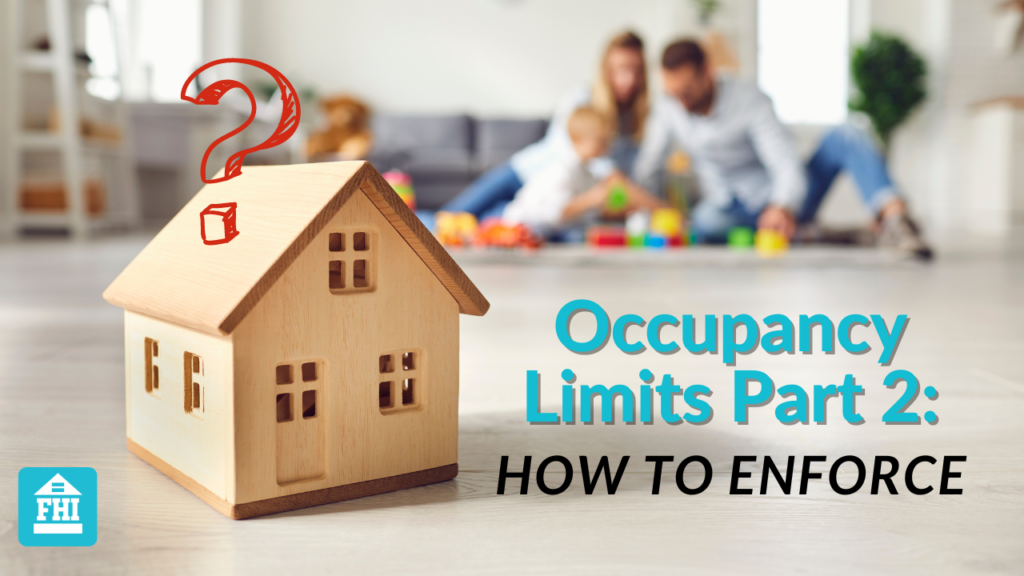With the ever-increasing demand for housing and the pressing need to maintain safety and livability standards, enforcing occupancy limits has become a crucial aspect of property management. However, striking the right balance between upholding occupancy restrictions and adhering to fair housing regulations presents a complex challenge. In part two of our series, we focus on four key questions that need to be considered when enforcing occupancy limits.
Estimated reading time: 3 minutes

Table of contents
Consider the following scenario. You receive a call from a resident that is inquiring about your occupancy policy. They live with their spouse, child, and elderly parent. Their unit has an occupancy limit of four people. However, their elderly parent requires full-time care, so they need to bring in an additional family member to help with this as both the other adults in the home work full time. What would you do? The following four questions will help you determine the best course of action.
Once you’ve set your occupancy limits for your property, is it possible to enforce them?
Yes, it is possible to enforce your occupancy limits as per your policy. However, you need to remember that there can always be exceptions, especially if a resident is requesting reasonable accommodation.
If you suspect the limits have been exceeded, what should be the first step?
The first step would be, of course, to inquire about the resident(s) who are living in the unit. If you determine that there are more people living in the unit than is listed on the lease, you would need to proceed with a lease violation. You could start by having a discussion about your occupancy policy and why you have it. It is the responsibility of the residents to comply with your policies but remember that there may always be exceptions, like in the case of reasonable accommodation.
What should you avoid doing when enforcing the occupancy limits you’ve set for your property?
A best practice is to avoid talking about children. Your focus should be on how many people are occupying the unit. This is the case unless your policy excludes infants; then, you would need to inquire so as to make this exception.
Can someone ask for a reasonable accommodation to your occupancy limit if your local laws have dictated your property’s occupancy limits?
Generally speaking, there are no rules or laws that can be excluded in the case of reasonable accommodation. When there are conflicting rules or laws at play, federal civil rights laws always win.
As property managers strive to create safe and welcoming environments for their residents, enforcing occupancy limits while upholding fair housing compliance remains a critical balancing act. By recognizing the importance of maintaining livability standards and respecting the rights of individuals, property managers can navigate this complex terrain successfully.
It is imperative to stay updated on local regulations and seek legal counsel when necessary to ensure that occupancy policies are fair, reasonable, and non-discriminatory. Moreover, proactive communication, clear guidelines, and ongoing training will ensure that every staff member will maintain compliance.
You May Also Like:
